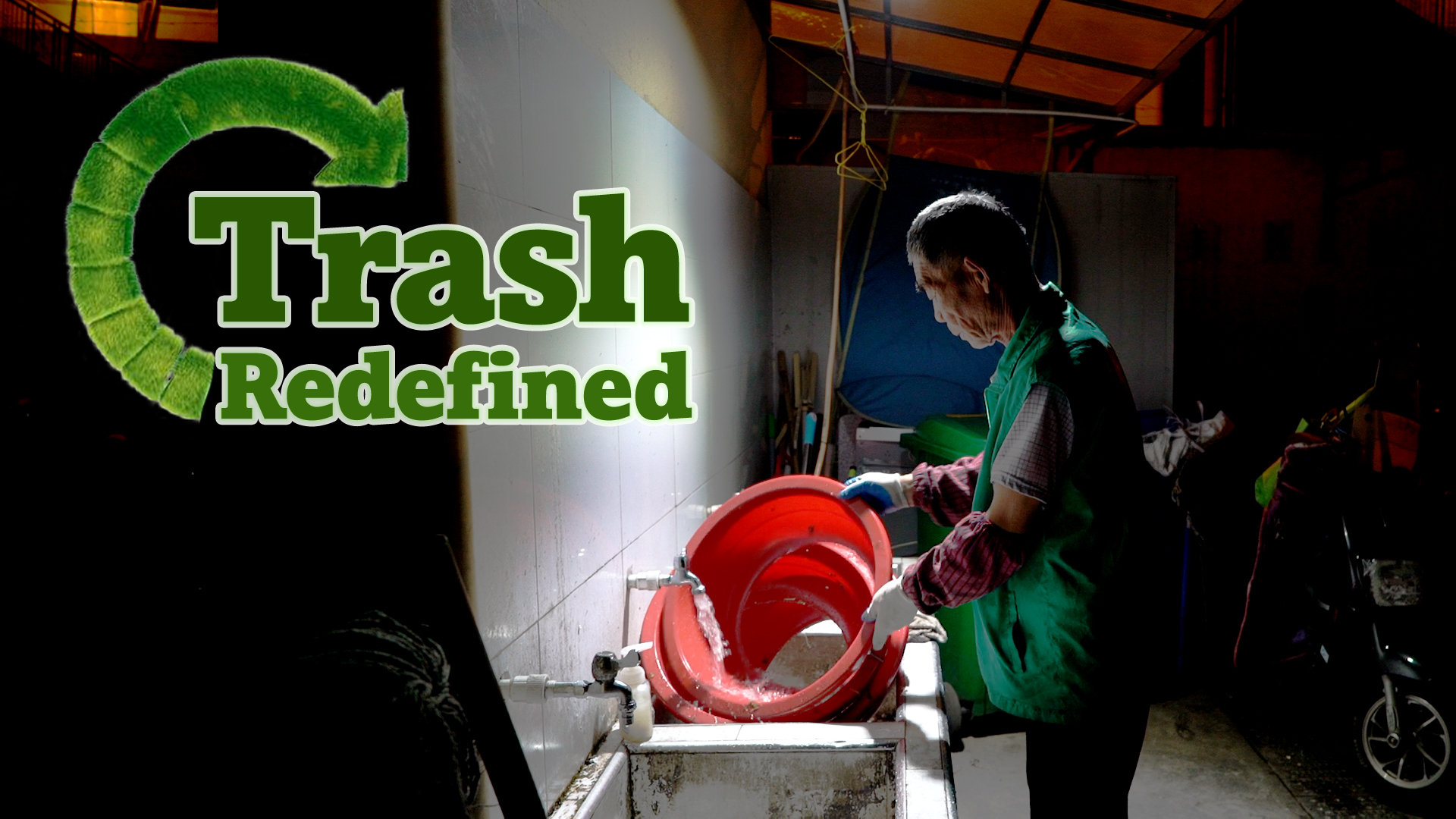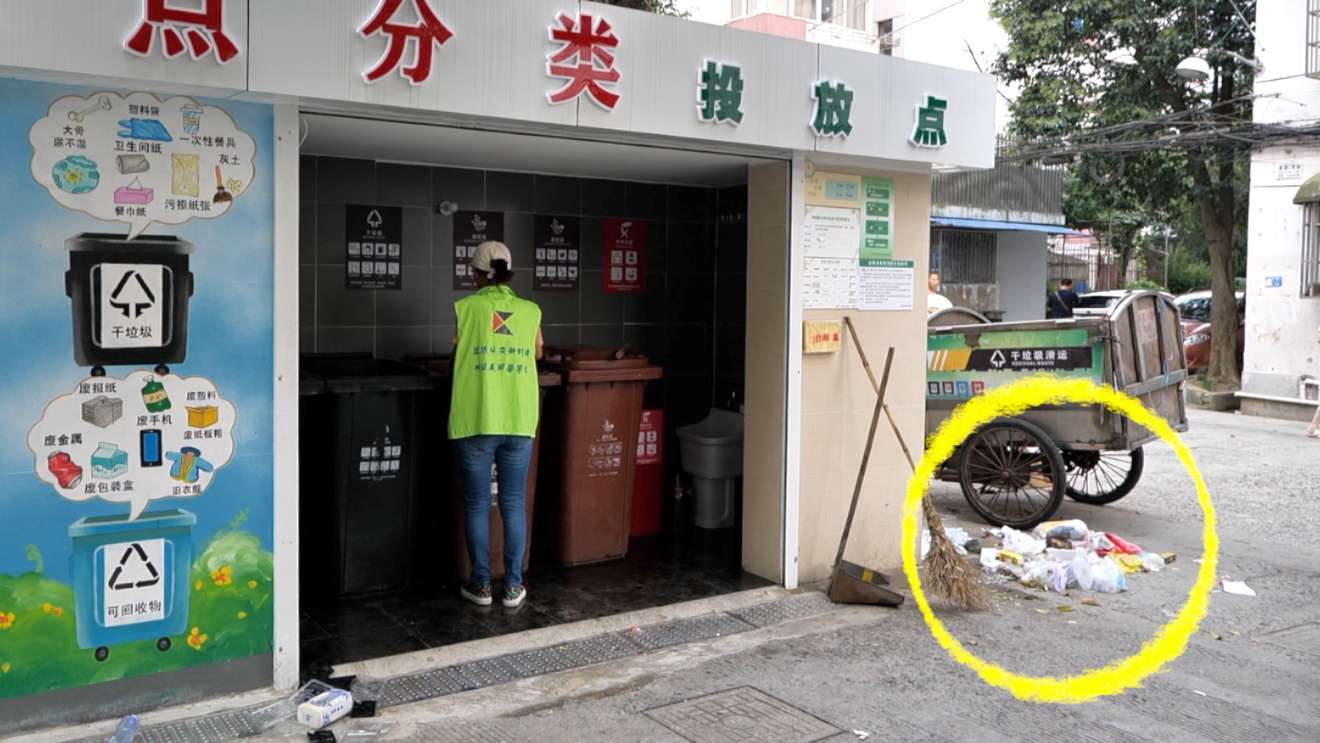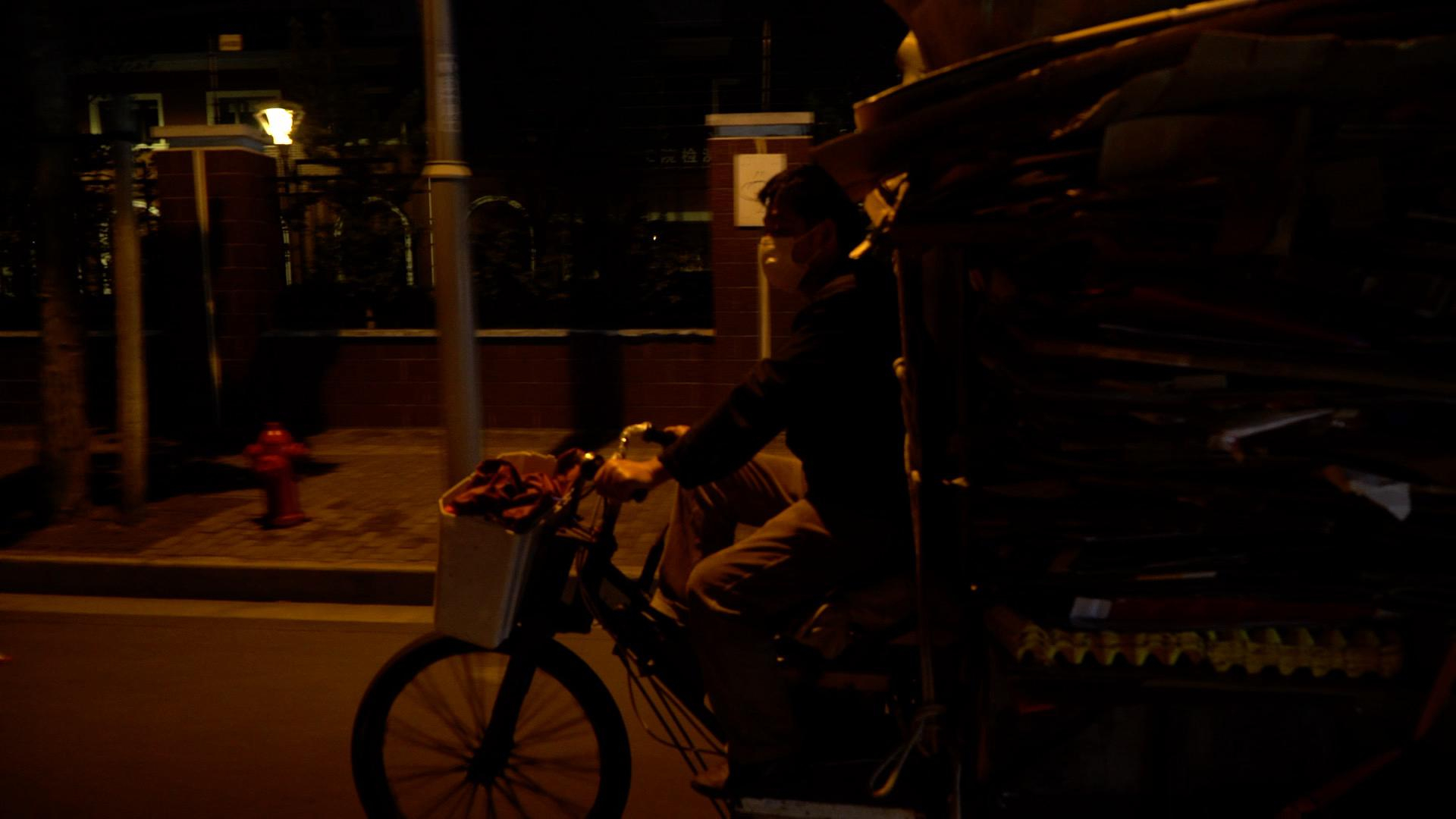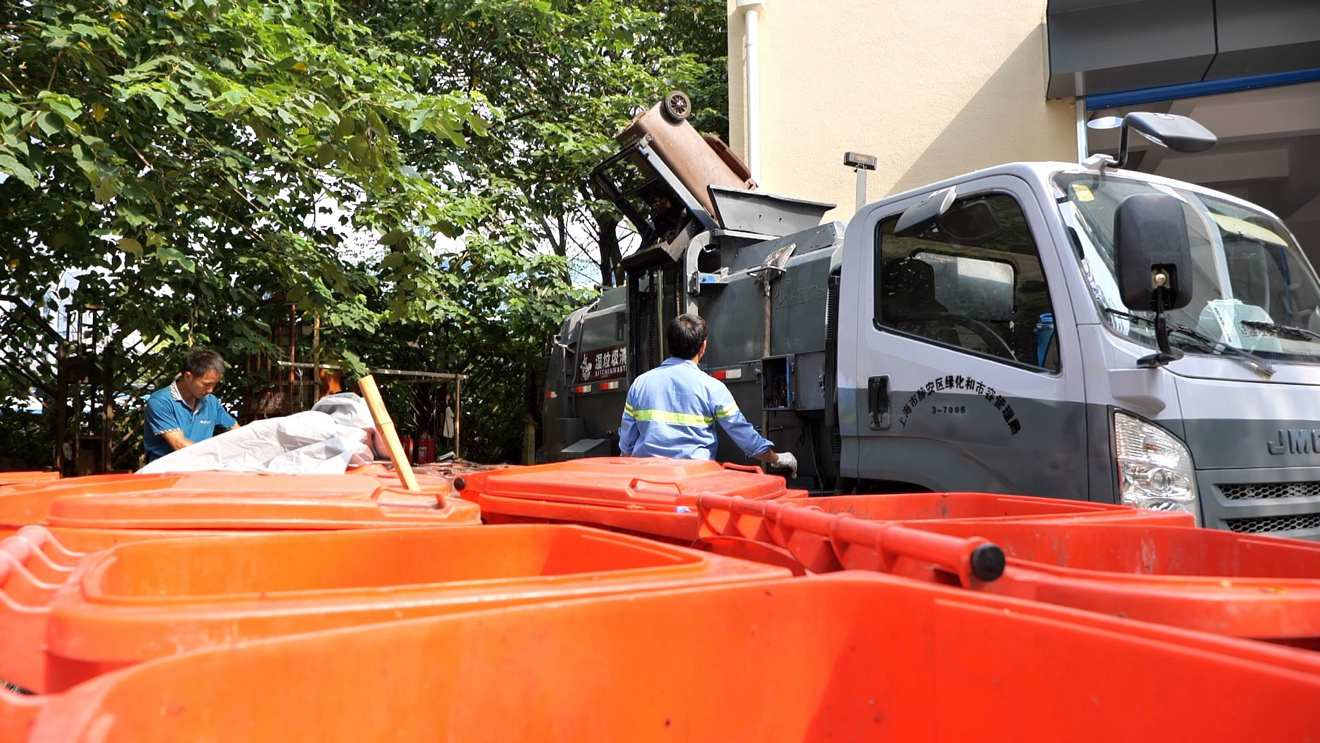

August is one of the hottest months in Shanghai, with temperatures well above 30 degrees Celsius, and humidity sometimes approaching 90 percent. The steamy weather is surely a struggle for people who work outdoors.
"I'm so busy these days!" said Zhou Yuexiang, a janitor for a residential community in Shanghai. Under the city's new garbage sorting rule, all trash bins in the area now must be moved to one room. And new disposal time guidelines mean she has to come to work much earlier each day. "Because of the new rule, the community needs me here. Somebody needs to open and close the gate, and keep watch, right?" said Zhou.

Some residents in the community choose to litter when the room is closed. /CGTN Photo
But her bigger new headache is the litter right outside of the garbage room. The room is closed for most of the day, but some residents just can't wait. "Most people follow the rule well, but some don't. The first thing I do in the morning is to clean the periphery," said Zhou.
Most of the people working in communities are migrant workers from the countryside. Apart from Zhou, many others make a living picking through recyclable waste and selling it. It was already a thankless job before the garbage sorting rule. Dangerous objects like shattered pieces of glass were mixed in with everything. "We have a hard time. We cut our hands picking through the waste all the time," said Su, a trash picker in Shanghai.
Yet they are important. They take care of over 90 percent of all discarded items from bottles and cans to cardboard thrown away in the city each day. "You're not a formal member of the system. But you're a valuable contributor to the challenge right now. The challenge that the city faces is the waste itself: How to manage it, how to make sure you recover the resources that are valuable to the manufacturing sector outside of Shanghai," said Richard Brubaker, founder of a corporate social responsibility advisory firm called Collective Responsibility.

Two waste pickers sorting through recyclable materials. /CGTN Photo
In the past two years, they were feeling the blow from a slowdown in the economy and China's industrial upgrading. The result is a slump in demand from factories for recycled materials. "Prices for recyclables are falling everywhere," said Su.

A waste picker transporting recyclables. /CGTN Photo
Under the new garbage sorting rule, many have become so-called "garbage room administrators." The good part is that they don't have to roam around and scavenge for recyclables anymore. But sometimes this new role isn't that great. When residents don't sort properly, these people are the ones who are left to deal with garbage truck workers who threaten to reject unsorted waste. "We need to sort people's garbage ourselves. We take them in and we start sorting," said Su.

Under the new rule, garbage truck workers have the right to reject waste that are not properly sorted. /CGTN Photo
Experts say something could be done on a legislative level against residents who fail to sort their trash. "The best models are actually Japan and Korea. Because the fines for failure is so high, and they're able to actually pinpoint who did what. If you can't, it makes it really hard to enforce individual failures," said Brubaker.
During the 2019 National People's Congress, a delegate proposed that the government should give trash pickers legal standing and formal employment. But changes don't come overnight. Shanghai's garbage sorting system is expected to set an example for the country. Experts say it is important to consider everyone's role in the disposal chain.
"I'll keep doing this job. Why? Because I'm not young anymore, and it's hard to find work. To be honest, garbage work is the only thing I can do," said Su.

Copyright © 2018 CGTN. Beijing ICP prepared NO.16065310-3
Copyright © 2018 CGTN. Beijing ICP prepared NO.16065310-3